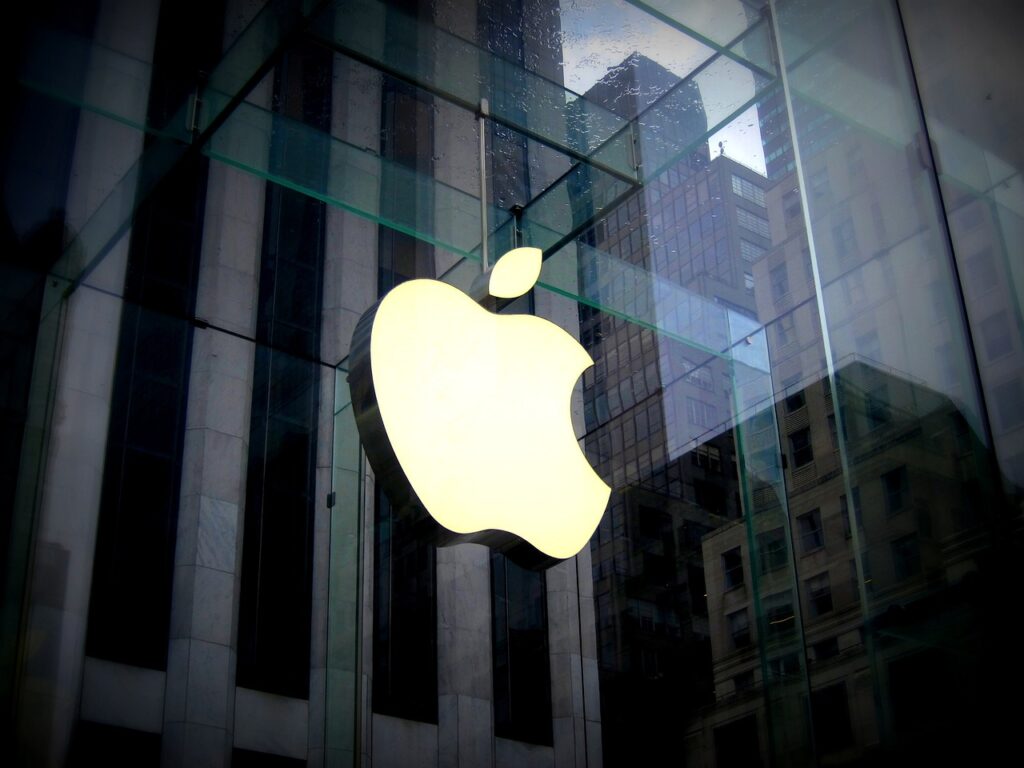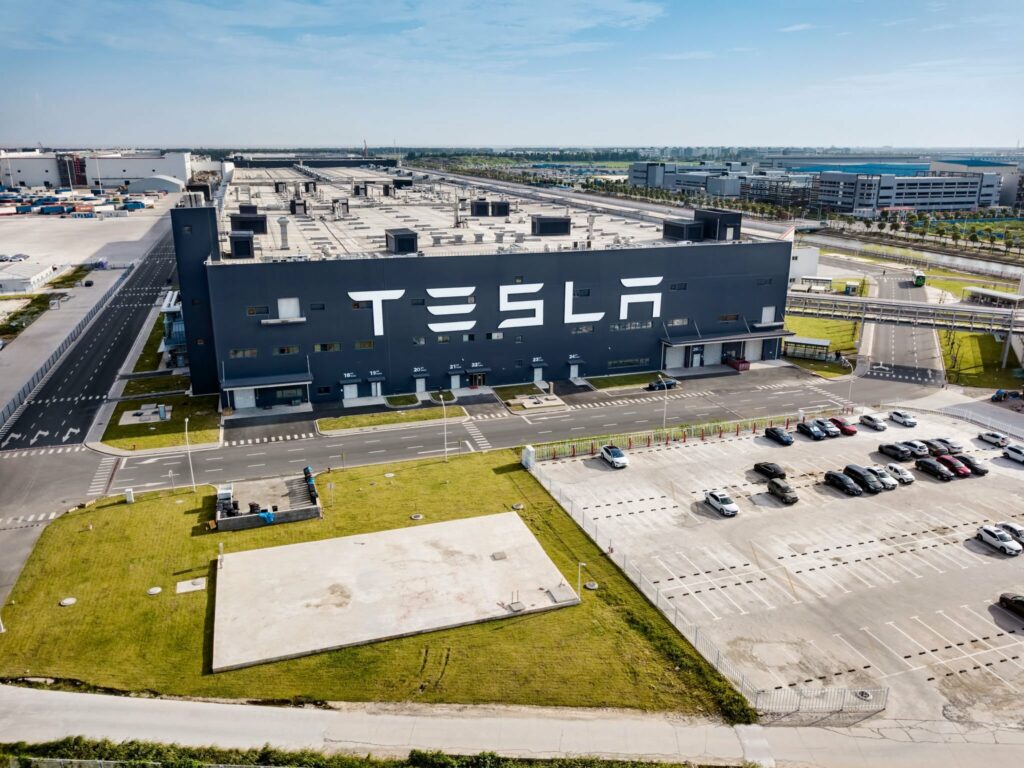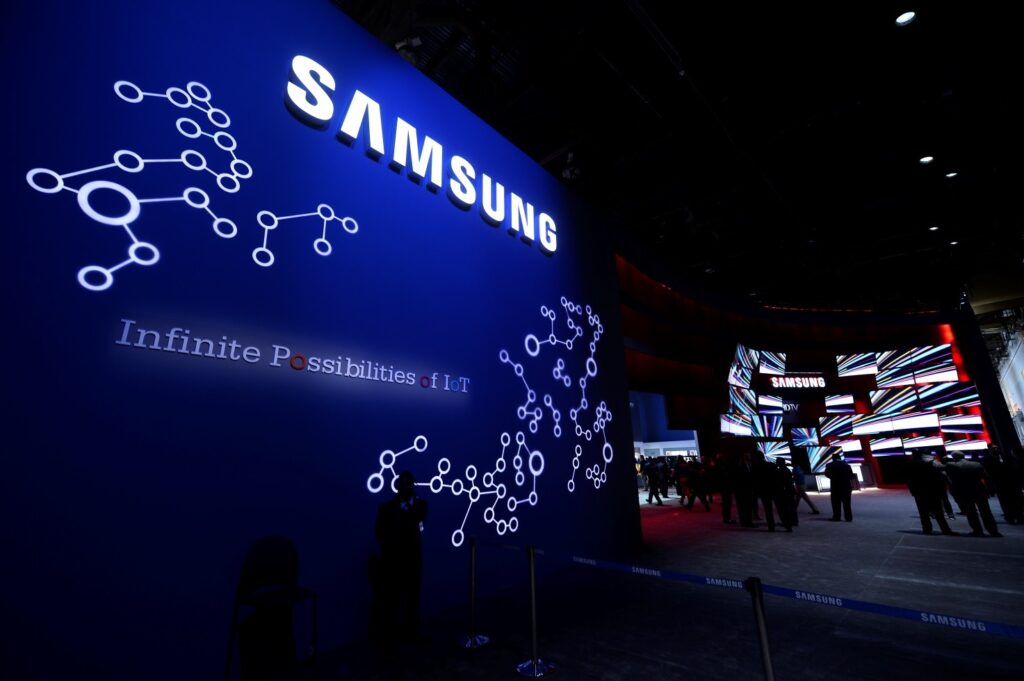From Humble Beginnings to Global Icons: The Epic Success Stories of 15 Revolutionary Companies” takes readers on an inspiring journey through the growth of some of the world’s most influential businesses. Starting from scratch, each company unveils the unpredictable rollercoaster ride of challenges and breakthroughs that propelled small startups into the stratosphere of global recognition.
This collection of stories is not just about business growth; it’s a testament to human aspiration and the relentless pursuit of a vision. It serves as a beacon of inspiration for anyone who believes that a great idea, coupled with grit and resilience, can change the world. Join us as we explore the fascinating evolution of these industry titans and how they reshaped our world.
 Pin
Pin Table of Contents
1. Microsoft
In the year 1975, in the burst of youthful audacity, two visionaries, Bill Gates and Paul Allen, set the cornerstone for what would become a colossus in the realm of technology: Microsoft. In a garage, amongst a tangle of wires and the glow of dim screens, they embarked on a quest to forge software for machines that, at the time, were no more than curiosities to the average person.
 Pin
Pin Image Credit: Pixabay
The struggle was Herculean. In a world where personal computers were novelties, convincing the masses of their potential required not just skill, but a foresight that bordered on the prophetic. They grappled with code, crafting the arcane language that could breathe life into inanimate hardware. Days and nights bled into each other, the line between them blurred by the harsh glow of the monitors that were their constant companions.
Their determination was a beacon that cut through skepticism and setbacks, propelling them onwards when others might have surrendered. It wasn’t just a company they were building—it was the foundation for a revolution.
Fast forward through time, and their tenacity has reshaped the world. Microsoft, once a fledgling startup piecing together software for early PCs, now stands tall—a tech giant. Its Windows operating system is an archetype, an environment where millions interact, create, and dream. The Office productivity suite, a symphony of applications that translates human thought into digital reality, is nearly as ubiquitous as paper and pen once were.
This success speaks not just of the products but also the spirit that drove their creation—a spirit that turned uncertainty into opportunity, complexity into simplicity, and the extraordinary into the accessible. How fitting it is that a journey marked by the ambition to empower every person on the planet to achieve more has itself become a paragon of technological empowerment. Microsoft’s tapestry, woven from threads of resilience and innovation, now drapes across a world eager to see what marvels it will conjure next.
2. Walt Disney
Once upon a time, amidst the golden fields and under the wide, open skies of a farm, a young boy named Walt Disney discovered a love for drawing. With every stroke of his pencil, this farm boy brought to life the whispers of his vivid imagination, giving birth to dreams upon paper.
 Pin
Pin Image Credit: Pixabay
But Walt’s journey from the simplicity of farm life to the creator of a joyful empire was no fairytale—it was ridden with trials and a testament to the indomitable human spirit. Before the world came to know the magic of Disney, Walt faced setbacks that could have derailed his dreams. He experienced business failures that left him with mere cents in his pocket, and his early creations even slipped away from his grasp.
Yet, his resilience was as steadfast as the dreams he held dear. And it was in the gentle curves of a mouse named Mickey, drawn with an earnest hope and a twinkling eye for the future, that Walt’s fortunes began to change. Mickey was more than a character; he was the embodiment of optimism, a friend to every child and adult alike, and the start of an enchantment that would sweep the globe.
The day when Walt opened the gates to Disneyland in 1955 was the day he invited the world to step into his dreams, to walk through a wonderland where fairytales reside in every corner and where the joy of children echoes in the air. It was a colossal gamble, an audacious belief in the delight of narratives and the draw of adventure.
From the modest roots of a farm boy, Walt Disney became the conjurer of a realm where magic was real, and where every visit was a passage back to the innocence of childhood. His name garnished tales and rides, fireworks and castles, and grew into a beacon of a global empire where stories are not just told but are lived.
The legacy Walt Disney left behind transcends the entertainment he crafted; it lies in the courage to envision the impossible and the resilience to make it a reality. Through his creations, which span the joyous realms of Disney parks and the wondrous scenes of countless movies, Walt Disney taught the world an invaluable lesson: that every struggle, no matter its depth, has the potential to lead to a success story woven in the colors of imagination and perseverance.
3. Google
Tucked in a modest garage in California, amidst a flurry of cables and computers, two Stanford graduates, Larry Page and Sergey Brin, ignited a digital revolution. In 1998, the duo brought to life a venture with a modest goal: to organize the web’s boundless information. The name of this fledgling enterprise? Google.
 Pin
Pin Image Credit: iStock
From the outset, Google’s ascension was meteoric; a search engine that didn’t just search but sorted the web’s content with razor-sharp precision using their groundbreaking PageRank algorithm. This was more than innovation; it was a reinvention of the query and response. In Larry and Sergey’s eyes, the world deserved an atlas for the ever-expanding digital universe, and they delivered with a simple, strikingly bare webpage that promised—and delivered—answers.
Yet, Google’s story isn’t confined to its peerless search capabilities. It morphed seamlessly into an omniscient tech Hydra, each head—advertising, cloud computing, software, hardware—breathing its own transformative fire into the marketplace. Online advertising found its champion in AdWords, meshing adverts with searcher intent, while Google Cloud constructed virtual scaffolding for companies scaling dizzying data heights.
Software turned smartphones into pocket-sized prodigies, thanks to Android, while Chrome offered a window to the web that was swift and secure. Hardware ventures like Pixel smartphones and Nest home devices intertwined technology with tactile reality. Google’s ambition was a tide, raising all ships to navigate the cyber seas with greater ease.
The vision that sparked to life in a garage expanded, breathing in the vastness of space and condensing it into the handheld marvels, the screens that light up with the answer to every question we pose. Google’s narrative is a masterclass in curiosity, a testament to the belief that access to knowledge is a universal right, echoing across servers and pulses of light.
Now, as one peers into the tapestry crafted by Page and Brin, it’s painted with the colors of struggle, dotted with nodes of triumph, and etched with the relentless pursuit of something greater. Google’s saga is a reminder that the tools we take for granted were once just dreams in a garage—a space where questions bloom and where, sometimes, they find their answers.
4. Apple
Apple’s journey, commencing in a humble garage in 1976, mirrors a modern epic. It was here that a trio of visionaries, Steve Jobs, Steve Wozniak, and Ronald Wayne, launched an enterprise that would redefine the tech scenario. Their initial offering, the Apple I personal computer kit, was an innovator’s dream, a wooden-cased wonder that enthusiasts assembled with a soldering iron and a steady hand.
 Pin
Pin Image Credit: Pexel
The nascent company saw many tribulations in its pursuit of greatness. Wayne, wary of risk, bowed out early. Jobs and Wozniak pressed on, driven by an unwavering belief in a future where computers would be personal and accessible. Their next act, the Apple II, was a game-changer, igniting the personal computer revolution.
Jobs, the ever-restless soul, pushed for aesthetic elegance and technological simplicity. This ethos was challenged during Apple’s tumultuous years, which saw Jobs ousted from his own company. Yet, Apple continued to innovate, albeit with a different leader at the helm, striving for technological excellence but struggling to recapture the pioneering spirit of its origin.
In a twist befitting of myths, Jobs returned in 1997, sparking an era of unrivaled innovation that reshaped not just the company but also the tech landscape. The introduction of the iMac, the iPod, the iPhone, and later the iPad, marked a sequence of blockbuster innovations that cemented Apple’s place at the pinnacle of technological innovation.
Under Jobs’ reinvigorated leadership, Apple became synonymous with products that are not merely gadgets but cultural touchstones. Their design and functionality echo a philosophy that technology should blend into our lives, enhancing it with seamless integration.
Today, Apple’s iconic bitten apple logo is a symbol of excellence and a testament to the company’s resilience through adversity. Jobs’ legacy endures, as the company he co-founded continues to push the envelope, embracing technology’s potential to transform lives. From its challenging beginnings to its towering present, Apple’s story remains an indelible saga of dreaming big, falling hard, and rising to shape the future.
5. Amazon
In the mid-90s, nestled within the burgeoning labyrinth of the World Wide Web, Jeff Bezos embarked on a venture from a small garage in Seattle that would irrevocably alter the retail landscape. Amazon, conceived initially as an online bookstore, opened a portal to an immense library, accessible from the comfort of one’s home. Bezos’s brainchild capitalized on the untapped potential of the internet, transforming how people shop and how goods are sold.
 Pin
Pin Image Credit: iStock
What began with the humble sale of books rapidly grew into an empire as Amazon’s virtual shelves expanded to encompass everything from A to Z. The journey from books to behemoth was fraught with challenges; the dot-com bubble burst, skeptics doubted, and financial obstacles loomed large. Yet, Amazon persevered, charting a course through choppy waters with Bezos’s unwavering vision at the helm.
The success of Amazon heralded a new era of convenience where clicks replaced brick-and-mortar shops, and the anticipation of a package became a global pastime. However, Amazon’s narrative didn’t plateau with e-commerce dominance. Bezos steered the company beyond the retail frontier, venturing into the stratospheres of cloud computing with Amazon Web Services, redefining data management and IT infrastructure.
With eyes on the horizon and an appetite for innovation, Amazon embraced artificial intelligence, integrating AI into its core operations. Alexa and Echo became household companions, while Amazon Go stores reimagined the shopping experience, removing checkout lines with just walk out technology.
As a digital streaming contender, Amazon Prime Video joined the ranks of entertainment giants, offering a trove of original content. From delivering packages above with drones to trailblazing in space entrepreneurship, Amazon continues to redefine what it means to innovate.
Bezos’s story is a testament to the power of vision and adaptability, harbingers of success in the digital age. Amazon, once a fledgling online bookstore, now stands as a colossus of the modern era, a paragon of the limitless possibilities that arise when determination meets imagination. It’s a tale that continues to unfold, a saga of relentless progress and the drive to constantly reach further, leaving a trail of transformation across the skyline of industry and innovation.
6. Facebook (Meta)
In the vibrant corridors of Harvard University back in 2004, a simple idea sparked between Mark Zuckerberg and his college roommates: a social network exclusively for Harvard students. Little did they know, this idea would sprout wings, taking flight beyond the hallowed halls and into the digital cosmos.
 Pin
Pin Image Credit: ShutterStock
This kernel of innovation, today known as Facebook, started as a ripple in the vast ocean of the internet, connecting classmates, then other universities, and soon after, the entire world. Transcending borders, cultures, and languages, Facebook’s exponential growth became a testament to the human craving for connection. It wasn’t just a platform; it was a global town square, a digital heartbeat pulsing with over 2 billion monthly active users.
But the road to success was far from a smooth scroll. As the user base boomed, so did the challenges. Privacy concerns, data security, and the monumental task of policing content; the journey was fraught with struggles akin to growing pains of a giant leap. Yet, Zuckerberg and his team’s tenacity transformed these hurdles into stepping stones. This relentless pursuit to innovate and adapt carved the path for a remarkable metamorphosis.
In the vastness of the 21st century’s digital landscape, Facebook – now Meta – has emerged not just as a social media platform, but as an arbiter of human connection. The recent rebranding as Meta represents a bold dive into the future with ambitions of building a fully-fledged metaverse, a universe within our universe, democratizing virtual reality for communication, business, and entertainment.
The Facebook tale isn’t just a success story. It’s a live testament to vision, adaptability, and the unyielding power of a world more connected. With its canvas ever-expanding, the narrative of Meta continues to unfold, promising a journey as captivating as its origin.
7. Airbnb
In the year 2008, amidst the whirlwind of a global economic downturn, a simple yet ingenious idea bloomed in the bustling city of San Francisco. Brian Chesky and Joe Gebbia peered into the horizon of possibilities and saw an unconventional opportunity—a way to make rent in their pricey neighborhood. With a conference in town and hotels fully booked, they offered travelers a cheaper alternative: air mattresses and a homemade breakfast. This stroke of creativity not only paid their rent but laid the foundation for what would become a behemoth in the travel industry—Airbnb.
 Pin
Pin Image Credit: ShutterStock
The early days were the quintessential start-up grind. Chesky and Gebbia, joined by Nathan Blecharczyk, faced skepticism, credit card debt, and the enormous challenge of scaling their offbeat idea. They transformed challenges into catalysts, fueled by the belief that people everywhere were seeking more authentic and personal travel experiences, a home away from home.
The ascent of Airbnb is a narrative hinged on community and trust. They introduced a platform that empowered homeowners to become entrepreneurs and enabled travelers to immerse into cultures in a way traditional accommodations never allowed. The journey was not a clear-sky flight; it took a nosedive into complex legalities, regulatory disputes, and the daunting task of ensuring safety and quality across millions of listings.
Yet, with every hurdle, Airbnb evolved. It bolstered its platform with user verification, insurance policies, and a support system that encouraged the global community to keep expanding. The trust emblem they created turned strangers’ homes into havens for wanderers and adventurers.
Today, with over 7 million listings worldwide, from bustling urban flats to tranquil treehouses, Airbnb isn’t just a service; it’s a movement that reimagined the essence of travel and human connection. As it soars into novel territories like luxury travel and even educational experiences, Airbnb continues to stitch a tapestry of narratives, one stay at a time.
The Airbnb saga, from air mattresses in a living room to revolutionizing the fabric of hospitality, encapsulates the alchemy of vision and tenacity. Chesky, Gebbia, and Blecharczyk didn’t just build a company; they crafted a symphony of intersecting lives and stories, making the world feel like a smaller, friendlier place. This is the heart of the Airbnb success story, a testament to reaching into the unknown and finding a global community waiting to be connected.
8. SpaceX
In 2002, amidst the backdrop of a sky that had seen the heights of human ambition, Elon Musk founded a company whose name would echo through the stars: SpaceX. His eyes set on the vast cosmos, he harbored a galactic-sized mission: to make space travel affordable and ultimately colonize Mars.
 Pin
Pin Image Credit: ShutterStock
The propulsion of this dream did not take off without its share of turbulence. The rocket science community was skeptical. Established industry giants loomed large, casting long shadows of doubt over Musk’s nascent venture. The first three launches of the Falcon 1 rocket were less than stellar, ending in failure and nearly bankrupting the company. But from the ashes of despair, a tenacious spirit of innovation blazed.
On the fourth attempt, the heavens yielded, and Falcon 1 soared into the orbit, marking a triumphant turnaround. The universe was Musk’s canvas, and he painted it with the ambition of Prometheus. SpaceX became the first private company to send a spacecraft, the Dragon, to the International Space Station. The Falcon rockets became a symphony of successes, each launch ferrying satellites and dreams with equal aplomb.
Yet, Musk’s gaze remained fixed on a horizon beyond. The Starship, a gleaming testament to human boldness, is being wrought in the SpaceX forges. Though still upon the anvil of development, each test, each trial, is a step closer to Mars, closer to a future written in the stars.
SpaceX’s saga is one of cosmic determination, where every setback refines their steel, every success launches dreams anew. It is a continuing story, etched not just in history but in the very fabric of space and time.
9. Uber
Once, in the teeming heartbeat of 2009’s Paris, two friends—Garrett Camp and Travis Kalanick—faced the age-old urban dilemma: hailing a taxi was a taxing challenge. From the crucible of this frustration, an idea sparked to life, one that would not only revolutionize their world but also transform urban mobility globally: Uber.
 Pin
Pin Image Credit: ShutterStock
Birthed in a crucible of innovation and grit, Uber began as a simple concept: tap a button, get a ride. But the road from concept to reality was as winding as the streets of San Francisco, where they would first launch. Early on, skeptics were as plentiful as the very cabs they sought to outpace. They faced regulatory roadblocks, fierce opposition from traditional taxi services, and a market unripe for disruption.
Despite these hurdles, Camp and Kalanick’s brainchild had a secret weapon: unwavering belief in the power of technology to navigate the hurdles of the transportation industry. They leaned on the throttle of progress, steering through the twists and turns with an app that signified simplicity and an experience that oozed convenience.
Raising funds was like weaving through rush-hour traffic—daunting yet navigated with the precision of a well-timed lane change. The founders’ pitch to investors evoked a future where the act of transportation was seamless and invisible, as effortless as it was revolutionary.
With every download, Uber’s presence accelerated. The app became a touchstone of modern culture available in over 900 metropolitan areas, transforming not just how we travel, but how we connect our lives. Drivers found flexible employment at the tap of a button, economies were stimulated, and streets across the globe buzzed with the potential of the on-demand world.
Despite controversies and legal showdowns, testing both its leadership and business model, Uber kept driving forward. It evolved, expanded its services, and even paved the way for a gig economy. It reflected a dual journey of a world rapidly moving toward digitization and a company steering at the spearhead of that shift.
Uber’s story paints the portrait of a modern odyssey, a ride that started on the cobblestoned lanes of Paris and expanded across continents, forever altering the fabric of urban transportation. Garrett Camp and Travis Kalanick didn’t just find a way to get from point A to B; they mapped a journey into the future.
10. Alibaba
Once upon a time, in the humble confines of a small Chinese apartment, a former English teacher with a dream scribbled the beginnings of an internet venture that would soon take the world by storm. This man, Jack Ma, possessing neither a background in technology nor significant capital, jumped feet first into the burgeoning realm of e-commerce with Alibaba in 1999.
 Pin
Pin Image Credit: ShutterStock
It was an era when the digital landscape in China was as sparsely populated as a desert, with few oases of online commerce to quench the thirst of forward-thinking entrepreneurs. Undeterred by his 18 rejections from jobs, including one from KFC, and the haunting memory of 10 rejections from Harvard, Ma’s relentless optimism and charismatic leadership gathered a group of friends and believers in his apartment, planting the seed that would grow into an e-commerce giant.
Ma’s philosophy was simple yet profound: “Help others to succeed and you will succeed as well.” With this mantra, Alibaba opened its digital doors, initially as a B2B portal connecting Chinese manufacturers with overseas buyers. The days were long, and the nights were longer, with challenges as mighty as the Great Wall: slow internet speeds, skepticism from local businesses, and fierce competition from more established players. Yet, just like the tenacious kung fu masters of old, Ma and his team persevered, innovating with each step.
Their hard work bore fruit when, in a twist as unexpected as a dragon’s flight, Alibaba soared past its competitors, not just in China but across the globe. The platform became a haven for millions of sellers and billions of transactions. Alibaba’s Singles’ Day sales began to eclipse even the grandest Western shopping holidays like Black Friday and Cyber Monday.
IPO day came, and Alibaba’s name was inscribed into financial history with gold ink, as it boasted one of the largest public offerings ever witnessed. The small apartment where it all began was no longer a cradle of dreams but the birthplace of a legend.
Jack Ma’s Alibaba reshaped not just Chinese but global e-commerce, casting a shadow that still fosters growth and innovation. It’s a testament to the fact that even the longest journey starts with a small step — or in Ma’s case, a single click. The Alibaba tale has grown into a story of triumph not just for Jack Ma, but for everyone who believes that an idea, no matter how small or where it comes from, can change the world.
11. Tesla, Inc.
In the early 2000s, when the roar of gas engines was the uncontested anthem of the automotive industry, a quiet revolution was brewing in the minds of Martin Eberhard and Marc Tarpenning. They embarked on a bold mission to challenge the status quo by founding Tesla, Inc. in 2003. This enterprise would not only question the dominance of fossil fuel-powered vehicles but audaciously propose an electric future.
 Pin
Pin Image Credit: iStock
Tesla’s beginnings were far from glamorous; they were steeped in the kind of struggle that forges steel determination. In the face of skeptics, the company toiled to produce its first vehicle, the Tesla Roadster. It was a gamble in a market saturated with internal combustion loyalty, and initially, it looked like the cards might not fall in Tesla’s favor.
This is where the narrative gains its most charismatic character: Elon Musk. Musk, already a Silicon Valley maverick, saw the diamond in the rough that was Tesla. With his backing and vision taking the helm, the company would not just inch forward—it would accelerate.
The challenges were almost Herculean. Musk and his team had to pioneer new battery technologies, tackle production nightmares, and survive financial tumult that would have grounded less tenacious ventures. Yet, with every adversity came innovation: batteries became more efficient, cars smarter, and Tesla’s production lines, against all odds, grew alive with activity.
The launch of models like the Model S and later the Model 3 was met with enthusiasm that bordered on the fanatical. Tesla’s electric cars began to achieve not just technological accolades but became symbols of a sustainable future—one gleaming with possibility.
Integration of solar power and energy storage solutions expanded Tesla’s domain beyond the open road and into the very homes of people, reinforcing not just a brand, but a movement. Tesla’s struggle evolved into success so resounding that it compelled the entire automotive industry to take notice.
Tesla, under Musk’s daring lead, became synonymous with the clean energy revolution, dramatically impacting the global conversation about energy and transportation. As legacy automakers began committing to electric vehicles, it was clear: the landscape was forever altered.
The road continues to unfurl for Tesla, undoubtedly filled with further challenges to navigate and triumphs to achieve, but the journey thus far speaks to the relentless spirit of innovation. A testament to the fact that even in a skeptical world, an electric dream, charged with passion and purpose, can become an electrifying reality.
12. Netflix
In the twilight of the 20th century, Reed Hastings and Marc Randolph sparked a revolution from the unlikeliest of places: a DVD rental service. When Netflix was born in 1997, it faced a Goliath—Blockbuster. Despite the odds, these two visionaries had an inkling that the future of film was not on the shelves of retail stores, but on the fast-expanding web of the internet.
 Pin
Pin Image Credit: iStock
In those early days, Netflix’s red envelopes, filled with DVDs, would arrive in mailboxes with the promise of convenience. Yet, this was just a prelude to a much grander vision. Even as their postal service gained popularity, Hastings and Randolph were busy laying the groundwork for a seismic shift in entertainment consumption.
The struggle was real. There were tech hurdles, skeptics at every corner, and a looming financial precipice that threatened to end the show before the final act. The early 2000s were a test of resilience: dealing with a dot-com bust, fierce market competition, and the monumental challenge of convincing major studios to let go of their content.
Then came the pivot that marked the beginning of a new era: streaming. In 2007, Netflix introduced streaming services, changing “movie night” from a trip to the video store to a few clicks on a remote. It wasn’t an instant hit; the world’s bandwidth was still warming up to the task. But as the internet grew, so did Netflix’s library—and its subscriber base.
Netflix’s masterstroke was not just in foresight but also in innovation. As competitors emerged and technology advanced, they began producing their own content. High-quality, binge-worthy series became part of the global lexicon, with shows like “House of Cards” and “Stranger Things” turning into cultural phenomena.
The company that once mailed DVDs redefined an industry, amassing millions of viewers worldwide. Viewers who no longer had to adhere to schedules or commercials—they were now in charge. Netflix had not only shaken up the establishment but had also become part of it.
The story of Netflix from a DVD rental service to a streaming behemoth is a tale of vision, timing, and the relentless pursuit of an idea against all odds. It’s a reminder that the next revolution might just be lurking in the envelope of today’s simple solutions.
13. Samsung
In 1938, nestled in the bustling markets of Su-dong, South Korea, a small noodle and grocery business unfurled its banner—Samsung, meaning “three stars.” The founder, Lee Byung-chul, envisaged a company as eternal and luminous as stars in the sky, but his journey started far from the technological titan Samsung is known as today.
 Pin
Pin Image Credit: iStock
Lee’s entrepreneurial voyage commenced with dried fish, locally-grown groceries, and handmade noodles, trading these staples with Manchurian and Beijing merchants. It was a modest operation, often fraught with the difficulties of a volatile economy and the tumult of post-war Korea. Despite these challenges, Samsung thrived on Lee Byung-chul’s zest for innovation and his grit in the face of adversity.
As the years turned, so did Samsung’s ambitions. Swerving dramatically from its trading roots, Samsung delved into different sectors – textiles, insurance, securities, and retail. Each pivot was Lee’s testament to resilience, a daring move that propelled Samsung deeper into the lives of Koreans.
The real metamorphosis began in the late 1960s when Samsung entered the electronics industry. Initiated to produce black-and-white televisions for domestic sale, this endeavor propelled Samsung into an era of hi-tech manufacturing that would soon define its global legacy.
It wasn’t a smooth ride to electronic preeminence. Samsung faced stiff competition from established Japan-based brands, navigating through a thicket of technological innovation, trial and error, and the formidable challenge of brand perception. Yet the company remained steadfast, guided by a philosophy fostering a deep commitment to quality and an inexorable push towards research and development.
In the 1990s, the stars aligned for Samsung with the mobile revolution. The company foresaw the ubiquity of mobile technology and invested heavily in research, transforming itself from a copycat brand to a world leader in mobile phones and semiconductor technology. Samsung’s Galaxy smartphone and television products became synonymous with cutting-edge technology, quality, and reliability.
Today, Samsung stands as a colossus among global corporations, its products ubiquitous, its brand synonymous with innovation, quality, and resilience. Lee Byung-chul’s legacy is not only the technological marvels that bear the Samsung logo but also the indomitable spirit that forged a grocery store into a global powerhouse.
The “three stars” that once symbolized a modest hope now gleam on the cutting edge of technology, illuminating how innovative vision and unwavering perseverance can triumph over adversity. Samsung’s journey from selling noodles to shaping the digital world’s landscape encapsulates the human drive to dream and to achieve the extraordinary.
14. Coca-Cola
In the heart of Atlanta in 1886, a curious pharmacist named John Stith Pemberton concocted a caramel-colored syrup in a brass kettle in his backyard. Little did he know, his creation would fizz into the world’s most renowned soft drink — Coca-Cola.
 Pin
Pin Image Credit: iStock
Pemberton, a Civil War veteran, had first embarked on a quest to create a substitute for morphine, to which he had become addicted due to war injuries. He initially crafted a tonic he dubbed “Pemberton’s French Wine Coca,” inspired by coca wines of the period. However, with local prohibition laws looming, he was nudged towards innovation once more.
With necessity as the mother of his invention, Pemberton replaced the wine with carbonated water, blending the final touch on what we now cherish as Coca-Cola. He advertised it as a “brain tonic and intellectual beverage,” and it began its life sold at the local pharmacy for 5 cents a glass. But Pemberton, besieged by poor health, struggled to make a profit and never witnessed the rippling impact of his creation.
After Pemberton’s passing in 1888, Asa Candler, a shrewd businessman, grasped Coca-Cola’s potential. Through aggressive marketing and branding instinct, Candler’s efforts bubbled over, transforming the once modest patent medicine into a beverage of conviviality and refreshment.
The illustrious script of the logo graced calendars, wall murals, and newspaper ads, embedding it into the public consciousness. When mystery shrouded its recipe, allure only grew, captivating the world’s curiosity. Under Candler, a franchised bottling system spread Coca-Cola internationally, making it a symbol of the American way of life.
Soldiers in World War II holding bottles of Coke reinforced its image as a comforting slice of home. Its secret formula and nostalgic advertisements fostered a deeply personal connection with consumers worldwide, transcending beverage statuses. Coke became emblematic of joy, unity, and shared moments, outpouring mass influence merely from a blend of sugar, spice, and everything nice.
Throughout its existence, Coca-Cola has weathered controversies, changing health tides, and the ever-competitive market by introducing an array of new products and maintaining its signature approach to storytelling through advertising.
From Pemberton’s backyard experiment to the global mosaic of tastes and cultures that Coca-Cola echoes today, one can only marvel at how a simple fizzy drink reflects a concoction of success, tenacity, and the sweet taste of serendipity. Pemberton’s legacy is more than just a beverage; it’s a cherished companion to countless moments and memories — a universal emblem of happiness, spanning across generations and geographies, one sip at a time.
15. Sony
In 1946, amidst the rubble of post-war Tokyo, lay the remnants of an old department store. It was within this unlikely cradle that Masaru Ibuka and Akio Morita planted a seed of innovation that would bloom into a global powerhouse known as Sony. Their beginning was humble—their very first office was scarcely more than a dilapidated building, a relic of turmoil and strife.
 Pin
Pin Image Credit: iStock
Ibuka and Morita were an unlikely duo, driven by an indomitable will to succeed and an unwavering belief in the potential of technology to improve people’s lives. With only a few employees and a scant budget, they began their journey not with a bang, but with the quiet click of a tape recorder, an invention that revolutionized the way humans experienced sound.
But it wasn’t just audio that would carry the name of Sony into the annals of history. Ibuka and Morita’s vision propelled them through trial after trial. They transformed the landscape of television with the Trinitron color TV, an innovation that showered the living rooms of millions with vivid images unlike any seen before.
As the decades unfolded, Sony’s name became synonymous with cutting-edge technology, and their audacity in innovation was matched only by their resilience. The world witnessed the birth of the iconic Walkman, the device that unchained music from the confines of the home and turned every street into a personal concert.
When the digital age dawned, Sony was there again, leading the charge with the PlayStation, a gaming console that redefined entertainment, capturing the hearts of both the young and the young at heart. It wasn’t just about play; it was about creating worlds within our world, realms where the impossible was suddenly within reach.
Through the highs and lows of the global market, amidst fierce competition and technological upheavals, Sony stood firm. Their struggles were many: financial crises, failed ventures, and intense industry rivalry. Yet they remained steadfast, a beacon of innovation characterized by an enduring quest for excellence.
Today, Sony is not just a brand; it’s a testament to the power of vision, perseverance, and the relentless pursuit of innovation. From a war-damaged department store to a leading name in electronics, gaming, and entertainment, Sony’s journey reflects an invincible spirit amidst the most challenging of realities.
Ibuka and Morita’s legacy lives on in every Sony product that dings to life in households worldwide—a reminder that from the ashes of struggle can rise an empire of success, bound not by the constraints of the present but by the limitless promise of the future.
Each of these companies illustrates that with innovation, determination, and persistence, small ideas can transform into enterprises that change the world.
FAQ: Real-Life Success Stories of Leading Companies
Microsoft’s success can be attributed to its strategic entry into the operating system market with MS-DOS, followed by the launch of Windows. Cofounder Bill Gates’ vision to have a computer on every desk and in every home, focusing on software rather than hardware, solidified their industry dominance.
Coca-Cola’s rise to global prominence was driven by strategic marketing, constant innovation, and brand management. Its unique recipe, consistent branding, and massive distribution network have helped it maintain its status as a top-selling soft drink for over a century.
Facebook succeeded primarily due to its ability to connect people in a user-friendly online environment. Its continuous adaptation to user needs and integration of features, such as news feed and mobile compatibility, as well as strategic acquisitions like Instagram and WhatsApp, have kept it at the forefront of social media.
Walt Disney’s success is rooted in its unparalleled storytelling and character creation, which are both timeless and universal. The company’s diversification into theme parks, merchandise, and acquisitions of other entertainment companies like Pixar, Marvel, and Lucasfilm has ensured its lasting impact.
Common success factors include a clear vision, adaptability, strong branding, customer focus, and consistent innovation. Each of these companies has shown a remarkable ability to foresee and adapt to market changes while keeping their brand identity and values intact.
They maintained their market position through continuous innovation, strategic business decisions, and by expanding their offerings to keep up with changing consumer demands and technological advancements.
Yes, small businesses can learn a great deal about branding, customer loyalty, adaptability, and innovation from these giants. The focus should be on delivering quality, understanding market needs, and staying true to core values.




























